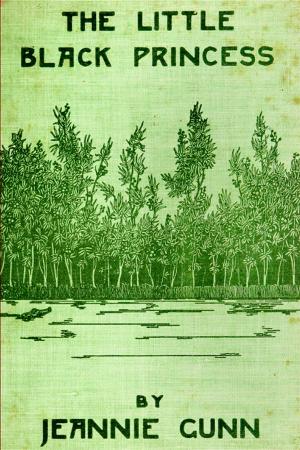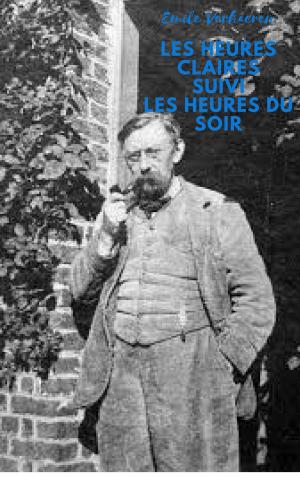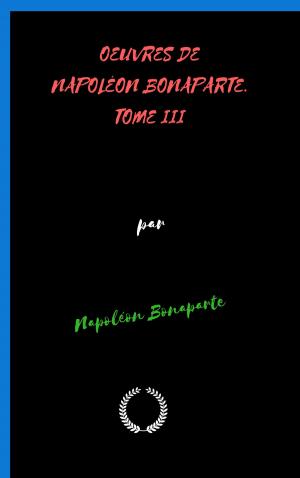THE PLÉBISCITE OR A MILLER'S STORY OF THE WAR
Fiction & Literature, Action Suspense, Classics, Historical| Author: | ERCKMANN-CHATRIAN | ISBN: | 1230002313009 |
| Publisher: | Jwarlal | Publication: | May 9, 2018 |
| Imprint: | Language: | English |
| Author: | ERCKMANN-CHATRIAN |
| ISBN: | 1230002313009 |
| Publisher: | Jwarlal |
| Publication: | May 9, 2018 |
| Imprint: | |
| Language: | English |
This book is among the best-selling popular classics "bestseller". Here is an extract of this book :
I am writing this history for sensible people. It is my own story during the calamitous war we have just gone through. I write it to show those who shall come after us how many evil-minded people there are in the world, and how little we ought to trust fair words; for we have been deceived in this village of ours after a most abominable fashion; we have been deceived by all sorts of people—by the sous-préfets, by the préfets, and by the Ministers; by the curés, by the official gazettes; in a word, by each and all.
Could any one have imagined that there are so many deceivers in this world? No, indeed; it requires to be seen with one's own eyes to be believed.
In the end we have had to pay dearly. We have given up our hay, our straw, our corn, our flour, our cattle; and that was not enough. Finally, they gave up us, our own selves. They said to us: "You are no longer Frenchmen; you are Prussians! We have taken your young men to fight in the war; they are dead, they are prisoners: now settle with Bismarck any way you like; your business is none of ours!"
But these things must be told plainly: so I will begin at the beginning, without getting angry.
You must know, in the first place, that I am a miller in the village of Rothalp, in the valley of Metting, at Dosenheim, between Lorraine and Alsace. It is a large and fine village of 130 houses, possessing its curé Daniel, its school-master Adam Fix, and principal inhabitants of every kind—wheelwrights, blacksmiths, shoemakers, tailors, publicans, brewers, dealers in eggs, butter, and poultry; we even have two Jews, Solomon Kaan, a pedler, and David Hertz, cattle-dealer.
This will show you what was our state of prosperity before this war; for the wealthier a village is, the more strangers it draws: every man finds a livelihood there, and works at his trade.
We had not even occasion to fetch our butcher's-meat from town. David killed a cow now and then, and retailed all we wanted for Sundays and holidays.
I, Christian Weber, have never been farther than thirty leagues from this commune. I inherited my mill from my grandfather, Marcel Desjardins, a Frenchman from the neighborhood of Metz, who had built it in the time of the Swedish war, when our village was but a miserable hamlet. Twenty-six years ago I married Catherine Amos, daughter of the old forest-ranger. She brought me a hundred louis for her dowry. We have two children—a daughter, Grédel, and a son, Jacob, who are still with us at home.
I have besides a cousin, George Weber, who went off more than thirty years ago to serve in the Marines in Guadeloupe. He has even been on active service there. It was he who beat the drum on the forecastle of the ship Boussole, as he has told me a hundred times, whilst the fleet was bombarding St. John d'Ulloa. Afterward he was promoted to be sergeant; then he sailed to North America, for the cod fisheries; and again into the Baltic, on board a small Danish vessel engaged in the coal-trade. George was always intent upon making a fortune. About 1850 he returned to Paris, and established a manufactory of matches in the Rue Mouffetard in Paris; and as he is really a very handsome tall man, with a dark complexion, bold looking, and with a quick eye, he at last married a rich widow without children, Madame Marie Anne Finck, who was keeping an inn in that neighborhood. They grew rich. They bought land in our part of the country through the agency of Monsieur Fingado, the solicitor, to whom he sent regularly the price of every piece of land. At last, on the death of the old carpenter, Joseph Briou, he became the purchaser of his house, to live there with his wife, and to keep a public-house on the road to Metting.
This book is among the best-selling popular classics "bestseller". Here is an extract of this book :
I am writing this history for sensible people. It is my own story during the calamitous war we have just gone through. I write it to show those who shall come after us how many evil-minded people there are in the world, and how little we ought to trust fair words; for we have been deceived in this village of ours after a most abominable fashion; we have been deceived by all sorts of people—by the sous-préfets, by the préfets, and by the Ministers; by the curés, by the official gazettes; in a word, by each and all.
Could any one have imagined that there are so many deceivers in this world? No, indeed; it requires to be seen with one's own eyes to be believed.
In the end we have had to pay dearly. We have given up our hay, our straw, our corn, our flour, our cattle; and that was not enough. Finally, they gave up us, our own selves. They said to us: "You are no longer Frenchmen; you are Prussians! We have taken your young men to fight in the war; they are dead, they are prisoners: now settle with Bismarck any way you like; your business is none of ours!"
But these things must be told plainly: so I will begin at the beginning, without getting angry.
You must know, in the first place, that I am a miller in the village of Rothalp, in the valley of Metting, at Dosenheim, between Lorraine and Alsace. It is a large and fine village of 130 houses, possessing its curé Daniel, its school-master Adam Fix, and principal inhabitants of every kind—wheelwrights, blacksmiths, shoemakers, tailors, publicans, brewers, dealers in eggs, butter, and poultry; we even have two Jews, Solomon Kaan, a pedler, and David Hertz, cattle-dealer.
This will show you what was our state of prosperity before this war; for the wealthier a village is, the more strangers it draws: every man finds a livelihood there, and works at his trade.
We had not even occasion to fetch our butcher's-meat from town. David killed a cow now and then, and retailed all we wanted for Sundays and holidays.
I, Christian Weber, have never been farther than thirty leagues from this commune. I inherited my mill from my grandfather, Marcel Desjardins, a Frenchman from the neighborhood of Metz, who had built it in the time of the Swedish war, when our village was but a miserable hamlet. Twenty-six years ago I married Catherine Amos, daughter of the old forest-ranger. She brought me a hundred louis for her dowry. We have two children—a daughter, Grédel, and a son, Jacob, who are still with us at home.
I have besides a cousin, George Weber, who went off more than thirty years ago to serve in the Marines in Guadeloupe. He has even been on active service there. It was he who beat the drum on the forecastle of the ship Boussole, as he has told me a hundred times, whilst the fleet was bombarding St. John d'Ulloa. Afterward he was promoted to be sergeant; then he sailed to North America, for the cod fisheries; and again into the Baltic, on board a small Danish vessel engaged in the coal-trade. George was always intent upon making a fortune. About 1850 he returned to Paris, and established a manufactory of matches in the Rue Mouffetard in Paris; and as he is really a very handsome tall man, with a dark complexion, bold looking, and with a quick eye, he at last married a rich widow without children, Madame Marie Anne Finck, who was keeping an inn in that neighborhood. They grew rich. They bought land in our part of the country through the agency of Monsieur Fingado, the solicitor, to whom he sent regularly the price of every piece of land. At last, on the death of the old carpenter, Joseph Briou, he became the purchaser of his house, to live there with his wife, and to keep a public-house on the road to Metting.















